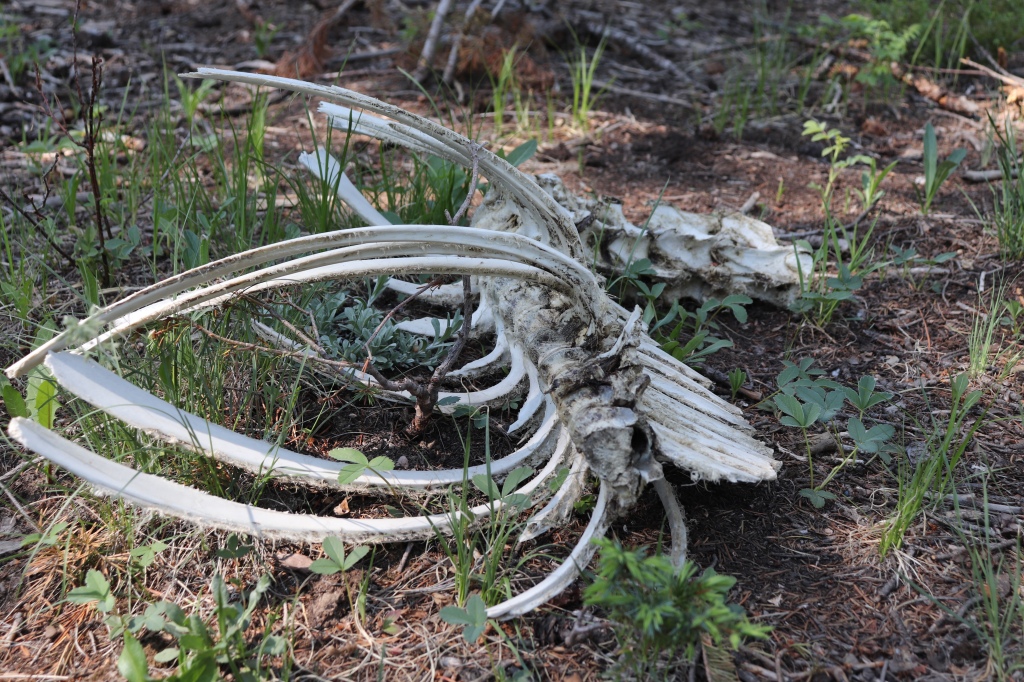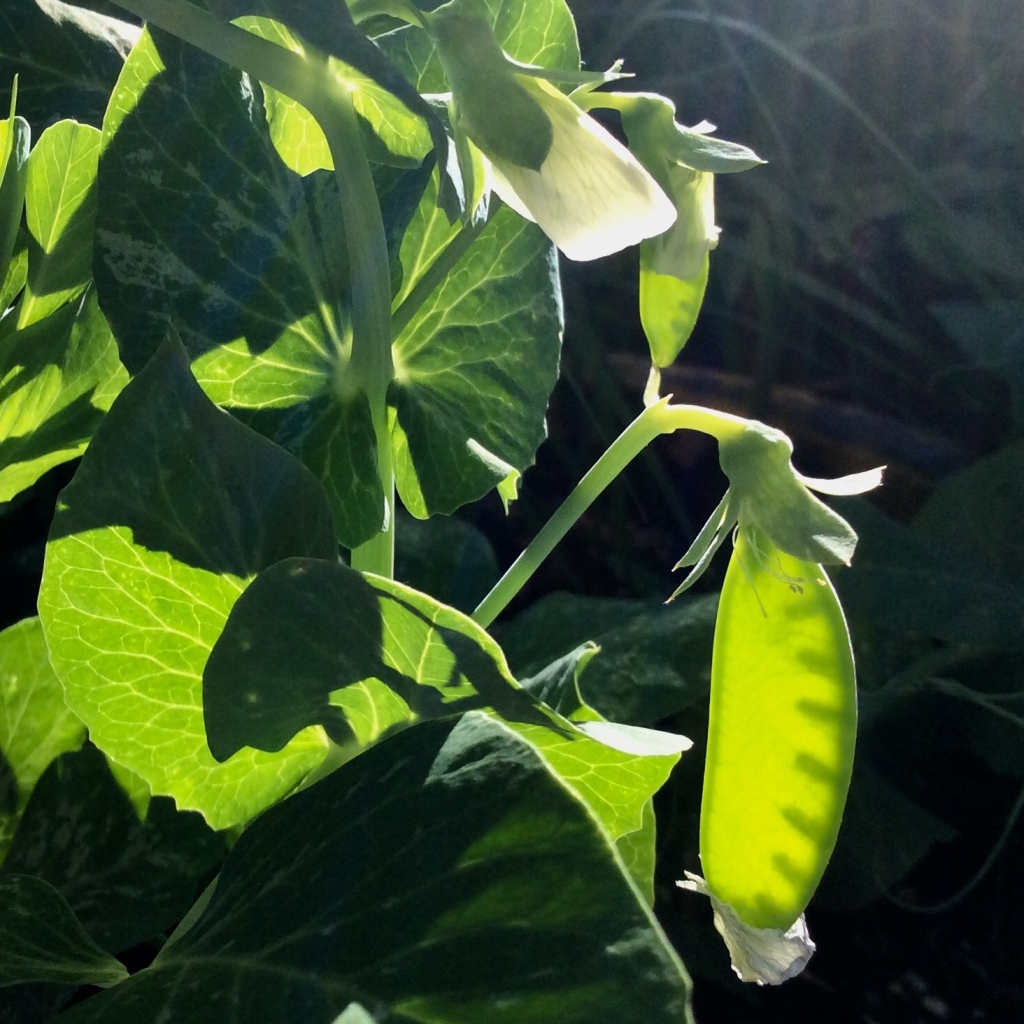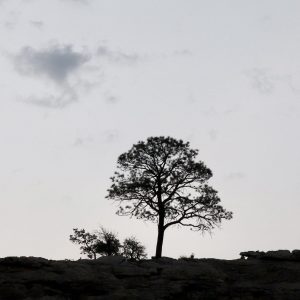“There are known knowns; there are things we know we know. We also know there are known unknowns; that is to say we know there are some things we do not know. But there are also unknown unknowns—the ones we don’t know we don’t know. […] It is the latter category that tends to be the difficult ones.”
—Donald Rumsfeld, February 12, 2002
May, 2023. The tree was a sign. A confirmation, maybe. It had been my anchor through several stays at the campground, including my first, buzzing-with-excitement voyage in the van. Every time, it had been the true North my compass turned to every morning, every evening, with every shifting cloud.
In 2023 I barely looked at it for six of the seven days I camped beneath the mesa and huge skies it calls home.

I once wrote about The Tree—about change and constancy, about identity in different settings. In 2021 the tree had shown me each moment of the natural world in fresh light. In 2023 it showed me myself.
I was tired.
From what I didn’t know. “Run of the mill” illness, just like for the last 27 years? The van? Adventure? I once read, “It doesn’t matter if you think the glass is half full or half empty. If you’ve held it too long, it’s just heavy.” I felt like I had been holding a glass for a long, long time.
I’ve heard, “Nomads are usually running toward something—so by definition we’re also running away from something.” I had run toward family, discovery, community. I had run from entrapment, isolation, emptiness.
Running from chronic problems doesn’t work. 2023 was the year I discovered that the van wasn’t my miracle cure. Illness still emptied most days. I had lost ground.
Was it time to seek a fixed dwelling again? I would have fewer unknowns to master, week after week. Maybe running on autopilot a bit more would lighten the glass.
**************

I have not been writing. Writing is its own adventure into the unknown. It can be, at any rate: a quest for truth, for the chime of connection, the sympathetic resonances between things that otherwise seem unalike.
I love writing to discover those kinships, listening for the chime and following where it leads. It’s why I struggle with practical prose—how-to posts, top 10 lists, and the marketable niches of “known knowns.” In writing, I love unknowns, and the unknown isn’t practical.
The unknown requires attention, and attention requires energy. It is easier to close off than to open up and listen.
If only that made the unknown go away and stop clamoring. Ready or not, it lies around every corner, every second of every day. It might bring danger, delight or dullness, but it requires response. Energy.
Closing off takes energy, too.
****************
We could die today.

That is the heart of the unknown. Do you consider it a downer? Truth is just true. Our response to it—avoidance, denial, fear, control—that might be a downer. Few souls face the unknown fully, freely, lightly, without trying to wrestle it into a safer shape.
****************
I’ve always said that how you cope with the unknown determines how you will cope with chronic illness. When you don’t know whether you’ll be able to cook dinner, meet an obligation, drive safely, or carry on a conversation without ending up in bed for three days, projects and goals become meaningless. Your plans will be derailed. That is a known known. Which ones? When? With what consequences? Will you recover? You have no way of knowing.
My strategy for dealing with that over the years has been to “live within my means”—to reduce the calls on my energy so that I can meet the demands of daily life alone. I thought that meant I was handling unknowns well—I made sure that whatever arose, I had the reserves to handle it. Was I coping well with illness—managing the knowns so the unknowns didn’t broadside me? Or was I denying that unknowns are…unknown and likely to be difficult?
How well do I handle the unknown?
I don’t know…
*****************
April, 2024. I have reduced the parameters again—or so it seems. I have purchased a lifetime lease at an RV park in a community of lovely artists and am acquiring a Tiny Home on Wheels.
I’m excited in a way, and at peace with the choice. Still. Why does this “more” seem like less? Why does stability feel like running? It’s really just practical, as a winter of POTS-related medical problems proved. But it seems like a retreat from adventure back to the cage of being housebound. It feels like a move from life to mere safety.
Long ago I wrote a blog called Microcosm, rooted in the premise that adventure and meaning could be found in the tiniest leaf of a tiny garden. At some point I could no longer find adventure there: the relentless sameness of the known overwhelmed me, even amid moments of beauty.

That loss wounded my belief in the power of choice—in sheer willpower to find or create meaning in life as it is.
I thought my van could outrun the crushing sameness of a tiny life. Only it couldn’t. Now here I am in southwestern New Mexico, starting again.
What is the difference between emptiness and the unknown?
*******************
Gene picks up, his voice cheerful through tinny reception. “Hi, Stacy!”
He’s overseeing the tiny house build. Neither of us has ever done this, and we have details to hash out.
I’m in the van when claws scrabble on the roof. I have become fairly good at identifying the featherweight hippety-hop of finches and the scratch of Stellar’s jays, but these are new—talons raking for purchase. In another moment, a kestrel lifts off toward the snowy Chiricahua Mountains.
Weeds are sprouting. I don’t know what they are, just that they are forerunners of what will become a habitat garden. I will sow wildflower seeds for spring and fall blooms, as I still want to travel in summer.
I have not outrun all the unknowns here, thank goodness. They still present new possibilities. But the same illness lingers, with the same constrictions. In a slow, grudging way I am becoming perversely intrigued by its lessons not to look elsewhere—not in a tiny garden, not in a van, not in writing—for meaningful days.
I don’t yet know where to look. Occasionally I sense that moments and days might be meaningful without our trying to make something out of them. They might be meaningful just because they’re true. Our efforts to wrestle them into another shape might be the real burden. Need an empty moment be a downer, if it’s just true?
Is adventure anything more than attention?
How long can I pay attention to emptiness?



